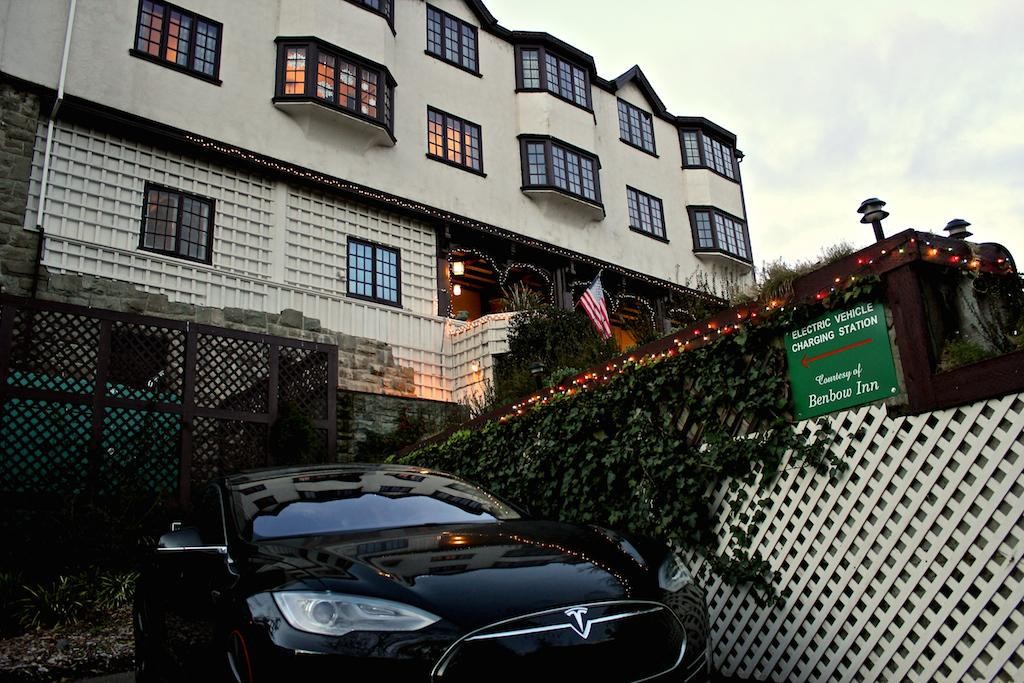Investor's Corner
Tesla Motors: Is Destination Charging Right for You?
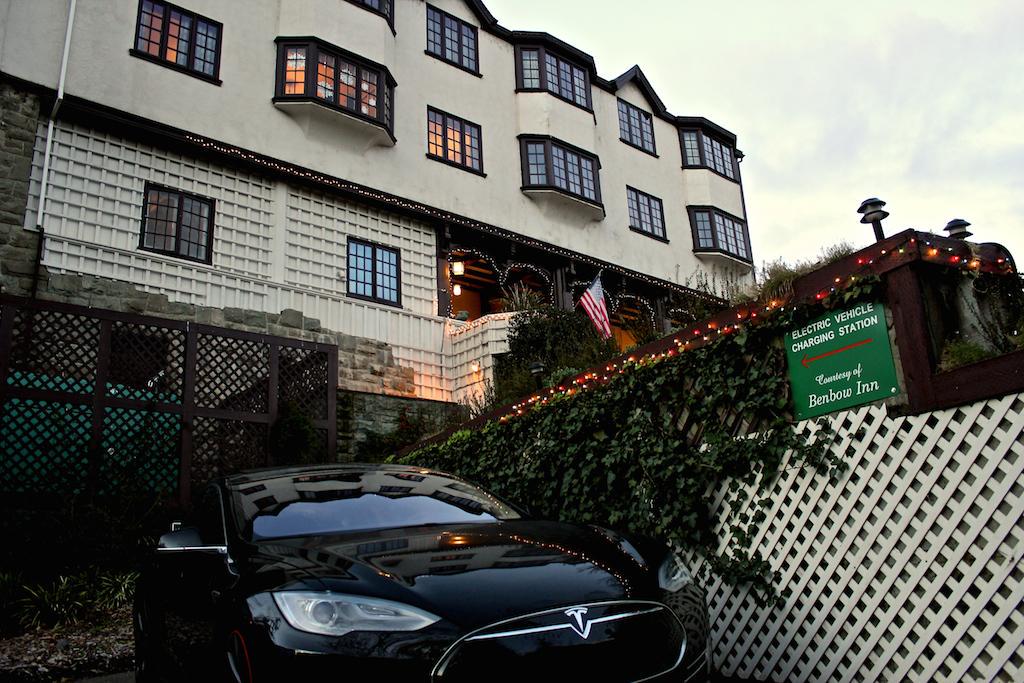
Once you buy a Model S, owners want to drive it everywhere it can possibly go and the phrase “destination charging” takes on bigger meaning. Thoughts about taking your SUV for the family trip is now quashed by your desire to drive your electric beast everywhere.
Living in Chicago, my first trip was to Lake Geneva where the hotel proprietor was very receptive in using 120V outlets attached to the ornate light posts in the parking lot. That was two years ago and now more hotel chains and proprietors are installing Tesla’s destination charging solutions, the Tesla high power wall connector. This charging solution offers fast charging at up to 80 amps and can add 59 miles in an hour.
However, raise your hand if you have the twin-charging option on your Model S? Twin-charge is an option for all model variations, not standard even on the P85D, which surprised me.
Last month, Tesla Motors mentioned destination charging in its shareholder letter, pointing to recent installations in the U.S. and Asia.
Tesla’s shareholder letter, date Feb 11, 2015:
As an extension of our Supercharger network, hotels and popular destinations have been installing our high-powered wall connectors at such a rapid pace that we are now coordinating these efforts as a Destination Charging program. Almost 900 locations in Asia and North America currently have 1,600 Tesla connectors installed. We plan to expand the Destination Charging program into Europe in Q2 of this year.
The Q2 comment is interesting due to more focus on high-speed charging in China, where certain media reports cite the lack of charging infrastructure in the most populous country in the world. A recent article in Bloomberg gave more details on the initiative, saying,
“So far, Tesla has largely picked up the tab for the cost of both the charging hardware and the installation. Small lodging establishments benefit because they are listed on Tesla’s website and eventually will appear on the dashboard navigation system.”
Some analysts have bemoaned the rising capital expenditures from the growing company, but this is not completely unfunded due to the added cost option for this hardware, which costs around $1,800 at time of purchase—some on the TMC board noted the cost rises to $3600 for a retrofit.
Daniel Sparks, Motley Fool, and a friend of the program recently estimated that 50,000 Model S cars will be delivered in 2015 (& 5K Model Xs) and let’s say that 1/2 of those deliveries include the twin-charging hardware option. That comes to $4.95 million in additional revenue for a very small component…Musk or somebody at TM knows the luxury segment!
Some hotel or properties also charge a small fee for using these high-powered wall connectors, as most proprietors list the need to be a hotel customer to access the charging points via Tesla’s supercharging map on its site. Right now, Tesla’s destination charging options tilts toward the west and east coast, but the increase in the rest of the country was steady in 2014. Take a look at Indiana, for example.
For customers at this point, destination charging and twin-chargers seem to be the right move.

Investor's Corner
Tesla (TSLA) shares company-compiled Q1 2025 delivery consensus
Analysts are expecting the electric car maker to post 377,592 deliveries for Q1 2025.
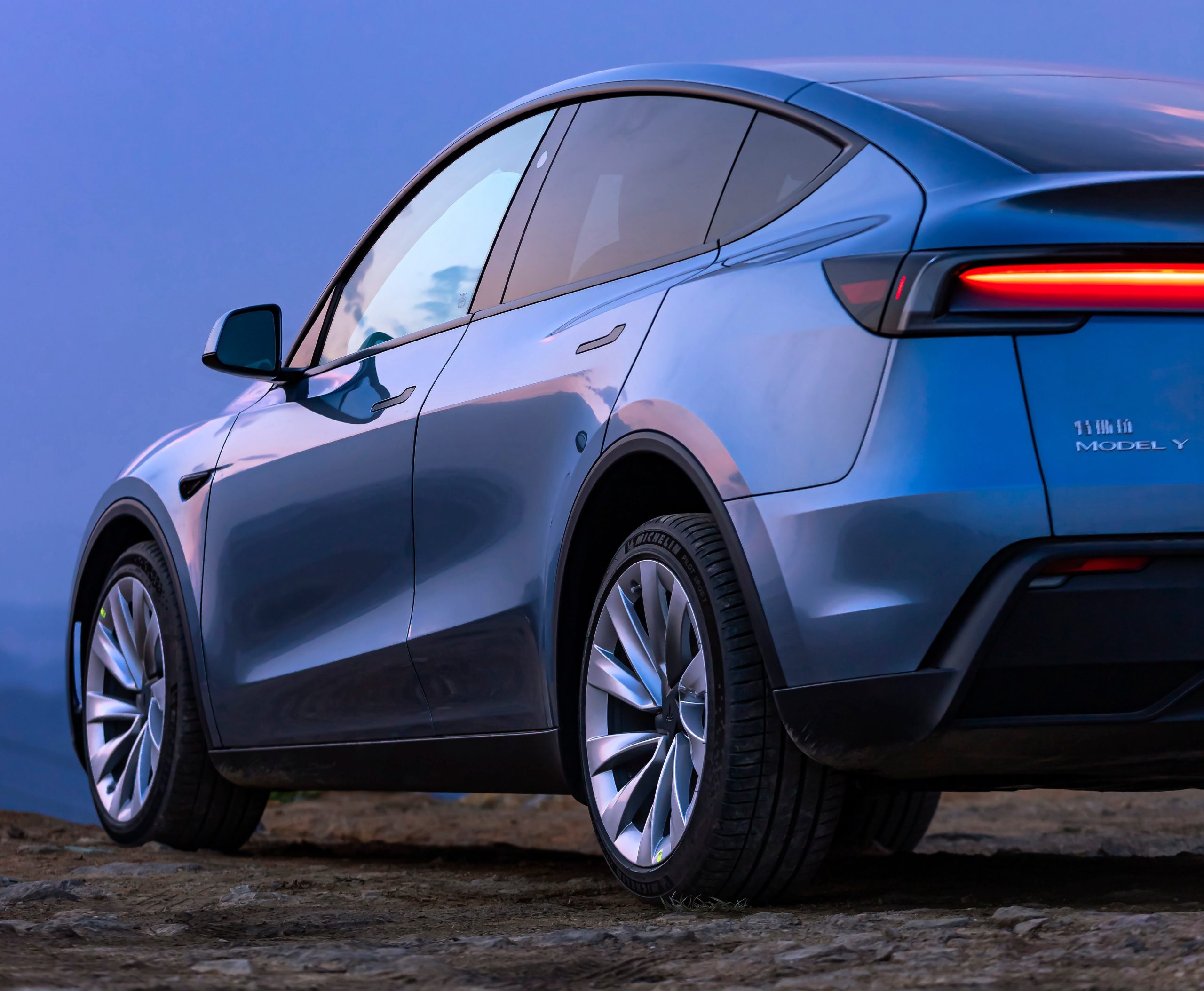
Tesla (NASDAQ:TSLA) has released its Q1 2025 company-compiled delivery consensus of sell-side analysts. Based on Tesla’s release, it appears that analysts are expecting Tesla to post conservative vehicle delivery results for the first quarter.
Images of Tesla’s Q1 2025 company-compiled consensus were shared recently on social media.
The Consensus
As could be seen in Tesla’s first quarter 2025 company-compiled vehicle delivery consensus, analysts are expecting the electric car maker to post 377,592 deliveries for Q1 2025. Analysts expect this number to be comprised of 351,893 Model 3/Model Y and 21,241 other models.
The company-compiled consensus also suggests that Tesla will see total deliveries of 1,851,001 vehicles this Full Year 2025. From this number, analysts expect 1,693,397 units of the Model 3 and Model Y and 145,162 units of Tesla’s other models.
The sources
Tesla’s company-compiled consensus was based on estimates from 27 firms. These include Daiwa, DB, Wedbush, Cowen, OpCo, Canaccord, Baird, Wolfe, Exane, GS, Evercore ISI, Barclays, PSC, Mizuho, BofA, Wells Fargo, Morgan Stanley, Truist, UBS, Jefferies, Guggenheim, JPM, Redburn, Needham & Co, HSBC, Cantor Fitzgerald, and William Blair.
FactSet expectations
As noted in an Investor’s Business Daily report, FactSet estimates suggest that Tesla will see vehicle deliveries of 407,900 units in Q1 2025. Such a number is quite optimistic considering that Tesla’s sales of its best-selling vehicle, the Model Y, were throttled during the quarter due to the company’s transition to the new Model Y.
Beyond Q1 deliveries, Tesla’s first quarter vehicle delivery results could trigger revisions to the company’s full-year delivery and earnings forecasts. FactSet data shows Q1 earnings estimates hitting 48 cents per share, down from 57 cents in late January and 74 cents late last year. For 2025, analysts now see earnings per share climbing 13% to $2.74, a drop from $3.31 before the Q4 earnings release.
Elon Musk
Elon Musk clarifies Trump tariff effect on Tesla: “The cost impact is not trivial”
The U.S. President has stated that Elon Musk stayed silent and provided no input in the administration’s tariffs.

U.S. President Donald Trump’s plan to implement a 25% tariff on non-U.S.-made vehicles starting next week would affect American electric car maker Tesla.
This was confirmed by CEO Elon Musk in a recent post on social media platform X.
Musk and Trump
While Elon Musk works closely with the Trump administration due to his role in the Department of Government Efficiency (DOGE), the U.S. president has emphasized that the Tesla CEO never asks for favors. This was highlighted in his recent comments, when he stated that Elon Musk stayed silent and provided no input in the administration’s 25% auto tariffs.
When asked by reporters if the new tariffs would be good for Tesla, Trump noted that they may be “net neutral or they may be good.” The U.S. president also pointed to Tesla’s automotive plants in Fremont, California and Austin, Texas, which produce vehicles that are sold in the country. “Anybody that has plants in the United States — it’s going to be good for them,” Trump noted.
Tesla Affected
In a post on X, Elon Musk clarified that the Trump administration’s tariffs would affect the prices of vehicle parts that are sourced from other countries. This was a concern that Tesla previously outlined in a letter to the U.S. Trade Representative, which noted that even with “aggressive localization” of its supply chain, “certain parts and components are difficult or impossible to source within the United States.”
As per Musk in his recent post on X, the cost impact of the Trump administration’s tariffs is no joke. “To be clear, this will affect the price of parts in Tesla cars that come from other countries. The cost impact is not trivial,” Musk wrote in his post.
Potential Effects
Reactions to Musk’s comments from users of the social media platform were varied, with some speculating that the Trump auto tariffs could result in Teslas becoming more expensive in the United States. Despite this, the potential increases in Tesla’s vehicle prices might not be as notable as other cars, particularly those that are produced outside the country.
Investor's Corner
Financial Times retracts report on Tesla’s alleged shady accounting
“Turns out FT can’t do finance,” Tesla CEO Elon Musk quipped on X.
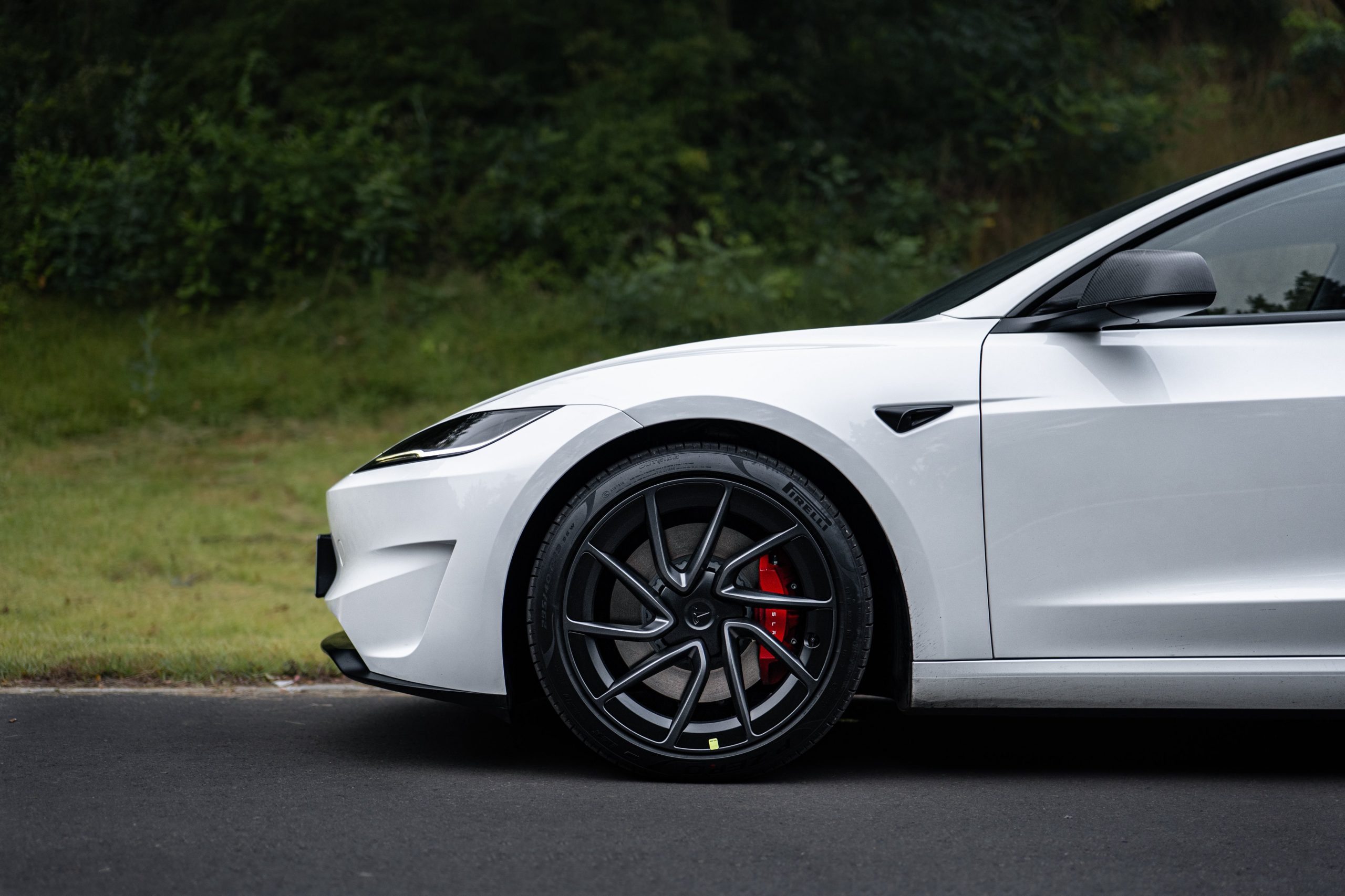
The Financial Times has issued a retraction for an article it recently published that accused the electric vehicle maker of shady accounting practices.
The FT’s retraction has been appreciated by the electric vehicle community in social media, though many highlighted the fact that the publication’s initial erroneous allegations have already been spread across numerous other media outlets.
The Allegations
In an article published on March 19, the Financial Times pointed out that if one were to compare “Tesla’s capital expenditure in the last six months of 2024 to its valuation of the assets that money was spent on,” “$1.4 billion appears to have gone astray.”
The FT article highlighted that Tesla reported spending $6.3 billion on “purchases of property and equipment excluding finance leases, net of sales” in the second half of 2024. However, in that period, the company’s property, plant, and equipment only rose by $4.9 billion. As noted by members of the r/Accounting subreddit, this appeared to be the basis of the FT‘s article, which seemed careless at best.
Unfortunately, the publication’s allegations were quickly echoed by other news outlets, many of which proceeded to accuse Tesla of implementing shady accounting practices.
The Retraction
In its retraction, the Financial Times explained that Tesla’s payments for assets already purchased and the possible disposal of depreciated property could help explain the alleged discrepancy in the company’s numbers. With these in consideration, the publication noted that the “crack we’re left with at Tesla is now small enough — just under half a billion dollars — to be filled with some combination of foreign exchange movements, non-material asset write-offs, or the sale of machinery or equipment close to its not-fully depreciated value.”
“As we sound the Alphaville bugle while lowering this particular red flag, one unavoidable conclusion is that at a certain point it’s necessary to trust the auditor’s judgment,” the publication noted.
Tesla CEO Elon Musk has responded to the Financial Times‘ retraction, commenting, “Turns out FT can’t do finance” in a post on social media platform X.
-
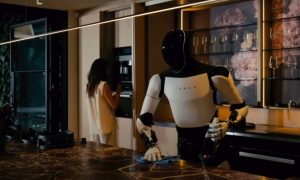
 News1 week ago
News1 week agoTesla aiming to produce first “legion” of Optimus robots this 2025
-
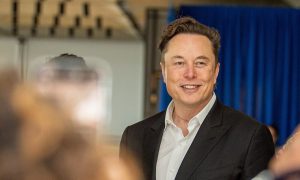
 Elon Musk6 days ago
Elon Musk6 days agoTesla CEO Elon Musk’s simple message to vandals
-
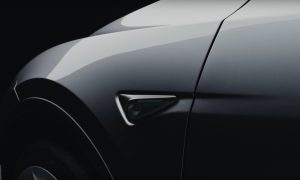
 Elon Musk2 weeks ago
Elon Musk2 weeks agoElon Musk confirms two measures Tesla is taking to fight vandalism
-
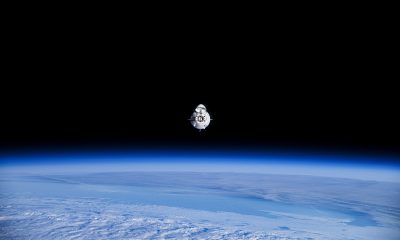
 News2 weeks ago
News2 weeks agoSpaceX rescue mission for stranded ISS astronauts nears end — Here’s when they’ll return home
-
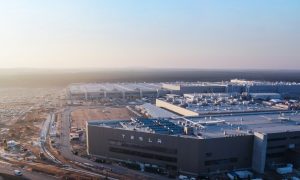
 News1 week ago
News1 week agoTesla’s Giga Berlin director responds to anti-Musk criticism
-
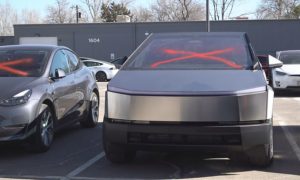
 Elon Musk2 weeks ago
Elon Musk2 weeks agoTesla owners doxxed by controversial anti-DOGE website in clear intimidation tactic
-

 Elon Musk1 week ago
Elon Musk1 week agoElon Musk to file lawsuit against former US Rep Jamaal Bowman: “I’ve had enough”
-
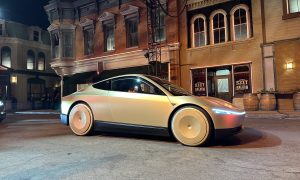
 News2 weeks ago
News2 weeks agoTesla reveals Cybercab battery pack and range efficiency
